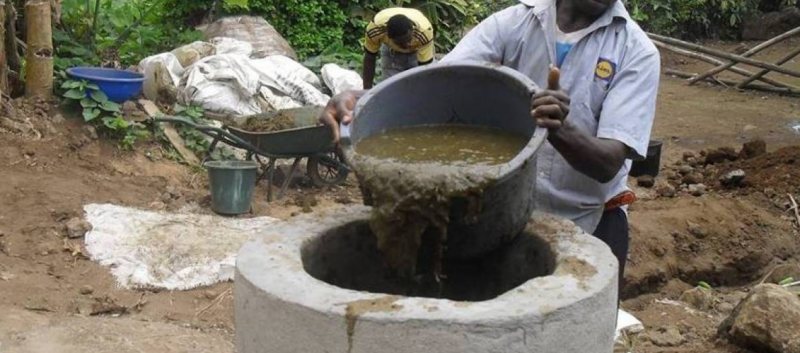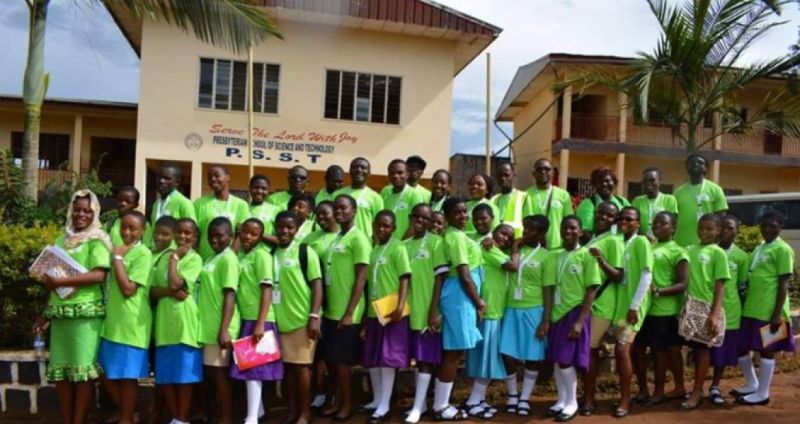Girls Turn Poo to Clean Power
Published on by WTP Operations Manager, Employee at Jobs and Scholarships in Technology
An initiative by youth organisations in Cameroon to turn human waste into biogas is reducing pollution and providing cheap, renewable energy to the growing populations of the university towns of Buea and Bamenda.
 Bioenergy-Cameroon, a non-governmental organisation run by young people, installs equipment that converts waste from septic tanks and pit latrines into biogas, which can be used for cooking or heating and can power small generators to run household electrical appliances.
Bioenergy-Cameroon, a non-governmental organisation run by young people, installs equipment that converts waste from septic tanks and pit latrines into biogas, which can be used for cooking or heating and can power small generators to run household electrical appliances.
The organisation says its efforts are spurring the use of clean energy in homes and secondary schools where grid electrical power is non-existent or unreliable and alternative sources of energy such as gas cylinders are expensive.
"Many have come to discover the cheap energy in their backyard and are not only embracing the technology but are also learning the transformation process," said Cedrick Kemajou, Bioenergy's coordinator.
As it expands, the project is bringing local councils and other youth groups on board.
Patrick Ekema, mayor of Buea said that with easier access to energy, the council can better tackle other development problems such as providing clean water.
 Biogas is produced by connecting a septic tank to a bio-digester which breaks down the organic matter, producing a natural gas known as bio-methane.
Biogas is produced by connecting a septic tank to a bio-digester which breaks down the organic matter, producing a natural gas known as bio-methane.
Students in schools where the infrastructure is installed are trained in the biogas transformation process and are shown how to build, install and maintain the biodigester and generators at the school.
"We give practical training to girls in colleges on how energy is generated from the sun, water and human waste," said Monique Ntumngia, coordinator of Green Girls, a Cameroonian NGO that trains young women in technology.
"We target female students especially, to break barriers and get them into innovative technology," Ntumngia explained. Green Girls has trained 600 girls in schools in towns such as Bafut, Nkwen and Mankon, she said.
An additional 3,000 households in Buea and Bamenda have received domestic biodigesters through the project, and demand is growing fast, project organisers say.
Many students in Buea and Bamenda say they have long suffered from persistent blackouts on the traditional grid power, where energy largely comes from hydropower.
"We could not study well during such blackouts that sometimes last for over a week. We have been suffering even though we are blessed with a clean energy source in our backyard," said Magdalene Lum, a student at the University of Buea.
"The new energy from human waste will be a constant and cheaper supply of our electricity," Lum said.
Costs and benefits
According to data from the World Bank, only 53 percent of Cameroon's population of 23 million have access to electricity.
Bottled cooking gas can be difficult to afford, especially for Cameroon's poorest. A 12kg cylinder of liquefied petroleum gas costs 6,000 Central African francs (FCFA), or nearly $10, according to the Ministry of Trade.
Charcoal production creates a huge demand for wood, which has frequently led the government to impose bans on charcoal burning and forest destruction.
The use of biogas energy should help preserve the country's forests.
CED estimates that the biogas project may be reducing greenhouse gases by as much as 60 percent in the vicinity of the projects, as well as curbing pollution from open air defecation and pit latrines.
"Cameroon will derive enormous economic, health and especially environmental benefits if renewable energy efforts are spread throughout the country," he said.
Source: Mail Online
Media
Taxonomy
- Sewage Treatment
- Sewage
- Energy
- Water & Wastewater
- Water & Wastewater
- Sewage & Allied Waste